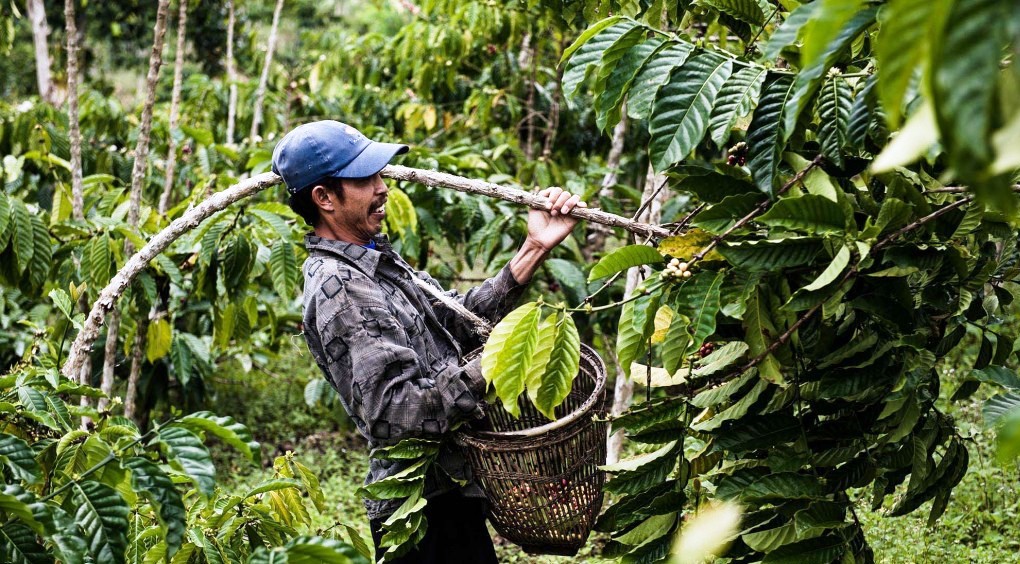Shopping Bag
0
- No products in the cart.

Coffee farmers in Sumatra are having to find ways to cope with the increasingly unpredictable weather caused by climate change which is hitting their harvests.
Some farming groups in the Indonesian island’s northern Gayo Highlands say they have seen coffee harvests fall by up to 50%, with damage to plants caused by unexpected rain or dry spells.
Rain also affects efforts to sun-dry the coffee beans, while warmer temperatures mean pests and diseases previously only seen at lower altitudes now threaten the high-quality Arabica coffee for which the highlands are known.
Co-operatives which sell their coffee as Fairtrade-certified are using money from the scheme to invest in measures to counteract the impacts of rising temperatures.
Through Fairtrade, producers receive a guaranteed minimum price for coffee and an additional “premium” which communities decide for themselves how best to spend.
In the Gayo Highlands these include schemes such as installing electricity, building libraries, cervical cancer screening and purchasing ambulances, buying pruning scissors and strimmers, and providing agricultural training.
But co-operatives are also turning their attention to preventing climate change hitting productivity, distributing new, more resilient varieties of coffee plant which have been developed.
Farmers are also encouraged to plant shade trees in the coffee gardens to protect the precious harvest, prevent erosion on sloping hillsides and provide an alternative income such as avocados, oranges or timber to reduce reliance on a single crop.
Coffee co-operatives face a number of challenges, including ageing coffee plants and young people seeking alternative jobs to farming.
Free Shipping On All Orders $200+ |
